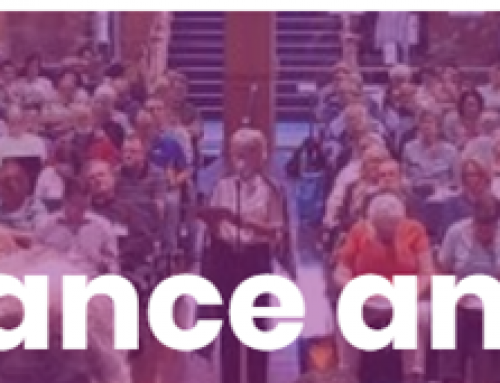I was reading a USA Blog that Pete Buttigieg has “surged to a 10-point lead in New Hampshire’s first-in-the-nation presidential primary,” according to a poll released the other day. The New York Times reports that he also holds a “commanding lead” in Iowa’s presidential caucuses.
Buttigieg is a graduate of Harvard and studied at Oxford as a Rhodes scholar. He served in the military in Afghanistan, reportedly speaks eight languages, plays the guitar and piano, and is active in the Episcopal Church.
His debate performances have displayed his obvious intelligence and grasp of policy detail. In many ways, he seems an ideal fit for many Democratic voters – left of centre, progressive (I call regressive) and of course politically correct (I call ‘incorrect’) views on everything
Buttigieg is also gay and is married to his husband, Chasten. An LGBTQ advocacy magazine named him one of fifty “trailblazing individuals who actively ensure society remains moving toward equality, acceptance and dignity for all queer people.” In their view, he is “reshaping politics and driving the religious right crazy in the process.”
How our society has changed on same-sex marriage
As the NSW State leader of a nonpartisan (apolitical and non-denominational) ministry, my purpose post today is not to endorse or criticize Mr. Buttigieg as a politician. Rather, it is to note the degree to which his popularity highlights our society’s acceptance of homosexuality, same-sex marriage, and the LGBTIQA (etc) movement.
In 2004, 60 percent of Americans opposed same-sex marriage, while only 31 percent were in favour. Today, the numbers are reversed: 61 percent support same-sex marriage, while 31 percent oppose it and in Australia, the law legalising same-sex marriage passed the Parliament on 7 December 2017 and received royal assent the following day. The Australian Marriage Law Postal Survey, 2017 recorded 57.8% Yes and 42.4% on the question ‘Should the law be changed to allow same-sex couples to marry?’
USA data shows that only 32 percent of non-evangelical Americans have “warm feelings” toward white evangelical Christians, the group most identified for its opposition to same-sex marriage.
A recent essay in the Wall Street Journal notes that 44 percent of Americans aged eighteen to twenty-nine say they identify with no religion; one of the reasons most cited by “nones” for their antipathy is that they “don’t like the positions churches take on political/social issues.” The author, a college professor, adds that some of the “issues” his students object to most often have to do with “women’s reproductive rights and non-heteronormative sexuality, especially same-sex marriage and transgender rights.”
As a strategist, I ask you “where should churches, Christina organisations and individuals direct their efforts, resources and prayers?”
My purpose today is not to debate biblical teachings on same-sex relationships but rather, I’d like to focus on the confusion wrought in the culture by the conflicting signals Christians are sending on this issue based on the USA experience above.
Pete Buttigieg and his ‘husband’ (a contradiction of terms) were married in the Episcopal Church. The Evangelical Lutheran Church of America, the Presbyterian Church USA, and the United Church of Christ are among other American denominations that either endorse or permit same-sex weddings. By contrast, most Baptist, Catholic, Anglican, and Pentecostal churches in America forbid same-sex weddings, as do the Presbyterian Church of America and many Methodist congregations. This trend is pretty much mirrored by Australian data.
As when a group of clergy recently prayed for God to bless a Planned Parenthood abortion clinic, when some churches and ministers endorse what other churches and ministers forbid, we obviously communicate confusing messages to our already confused culture.
In the last chapter of the last letter Paul ever wrote this warning: “The time is coming when people will not endure sound teaching, but having itching ears they will accumulate for themselves teachers to suit their own passions” (2 Timothy 4:3).
The “teachers” to whom Paul refers are inside the church. As The New American Commentary explains, people would “pack the pulpits of their churches with preachers who would tell them only what they desired to hear.”
Such preachers might be well-intentioned. They might believe personally the unbiblical messages they propagate. They might want to connect with non-Christians or demonstrate the tolerance of their congregations.
But the result for the misled people who hear them is that they will “turn away from listening to the truth and wander off into myths” (v. 4).
That’s why Paul instructs Timothy to “preach the word; be ready in season and out of season; reprove, rebuke, and exhort, with complete patience and teaching” (v. 2). To “reprove” is to speak to the mind, to “rebuke” is to address the conscience, and to “exhort” is to encourage the will. Taken together, these imperatives required Timothy—and us—to declare biblical truth on cultural issues. But we must do so “with complete patience” (steadfast endurance in the face of all opposition) and “teaching” (consistent and careful instruction).
Whatever happens with Pete Buttigieg’s candidacy for president, his ‘popularity’ has already and unfortunately normalised same-sex sexual relationships and marriage in our, what was a traditional culture.
His candidacy illustrates the dilemma evangelicals in America and in Australia will face: We can declare and defend biblical truth about same-sex relationships and other ‘culturally accepted’ immorality, or we can teach what the culture wants to hear rather than what it needs to hear.
I pray and hope we’ll remember the words with which Paul began 2 Timothy 4: “I charge you in the presence of God and of Christ Jesus, who is to judge the living and the dead” (v. 1). What it may cost us in this world to serve God pales in comparison to what it will cost us in the next world if we do not. And what it will cost those we influence as well.
Let’s end on a positive note. As Max Lucado (Christian author and pastor at Oak Hills Church Texas) says: “God never said that the journey would be easy, but he did say that the arrival would be worthwhile.” Rick Warren (an American evangelical Christian pastor and author) adds: “When you understand that life is a test, you realize that nothing is insignificant in your life.”
With credits to Dr. Jim Denison’s blog.
see https://thehill.com/homenews/campaign/471187-buttigieg-surges-to-10-point-lead-in-new-hampshire-poll?utm_source=The+Daily+Article&utm_campaign=88e24edcc6-EMAIL_CAMPAIGN_2019_04_16_05_39_COPY_01&utm_medium=email&utm_term=0_51f776a552-88e24edcc6-272947085&mc_cid=88e24edcc6&mc_eid=1afe5aca36&fbclid=IwAR2Z3TboaLSeVzrnCT5fUD-x-hX5hq1KY7rl1juw3kRWtQeFRSR1w8zKLag





